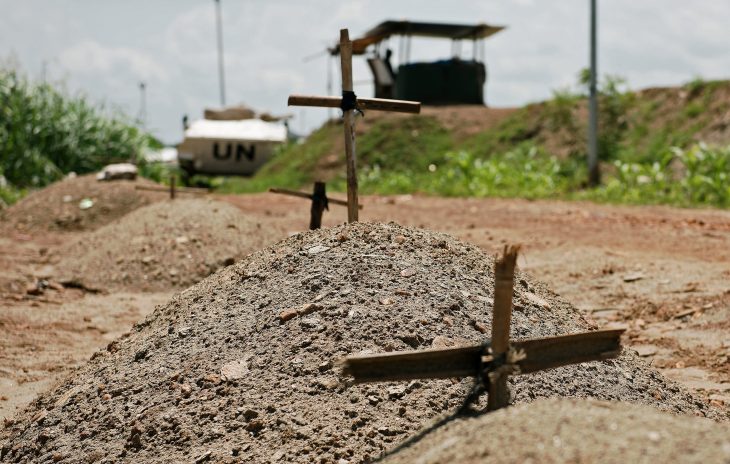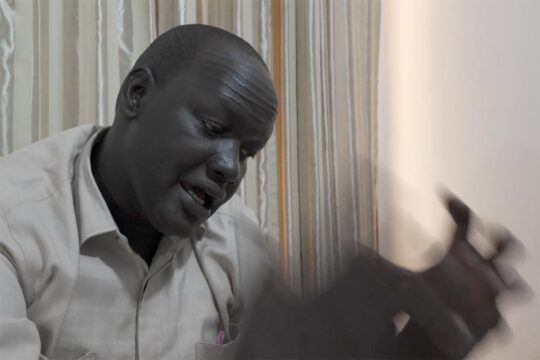South Sudan, where the government on Monday declared famine in some parts of the country, is mired in an economic crisis due to a devastating civil war.
Independent since 2011, the world's newest country was engulfed by civil war in 2013 after President Salva Kiir accused his rival and former deputy Riek Machar of plotting a coup against him.
The conflict has left tens of thousands dead and more than three million displaced.
Five things to know about the African nation:
- Economy in ruins -
Oil production -- from which South Sudan gained 98 percent of its revenues on its independence five-and-a-half years ago -- has plummeted by more than half and the country is struggling to halt rampant inflation.
Juba, which upon independence inherited three quarters of the former Sudan's oil reserves, depends on its northern neighbour's oil infrastructure -- refineries and pipelines -- for its exports.
On Monday, UN aid agencies said that 4.9 million South Sudanese, or 42 percent of the population, were going hungry, with 100,000 people affected by the famine. It threatens another one million people in the coming months.
- War against Muslim north -
Before South Sudan became independent, it was the southern part of Sudan, which was the scene of two civil wars, opposing mainly Christian and animist insurgents in the south and Khartoum's Arab-dominated government. Millions died in the conflicts.
Sudan's independence from Britain and Egypt in January 1956 caused a first war in the south against northern domination. The accords of 1972 brought an end to 17 years of conflict, and the south was given a measure of autonomy.
But in 1983, Khartoum reneged on the accords, unleashing another war between north and south. That rekindled an independence movement led by John Garang and his guerrilla rebel force, the Sudan People's Liberation Army (SPLA).
In January 2005, Garang signed a peace accord with Khartoum which exempted the south from sharia law and granted it six years of self-rule ahead of a referendum on independence.
Garang was killed in a helicopter crash in July 2005 and was succeeded as southern leader by Kiir.
- The world's youngest state -
On July 9, 2011, South Sudan proclaimed its independence, six months after voting by nearly 99 percent to secede from the north. Kiir was sworn in as the country's first president.
The international community, led by the United States, China, Russia and the European Union, as well as Sudan, quickly recognised the new African state.
- Former allies become enemies -
Kiir and his former deputy Machar, were linked by a common cause during the rebellion against Khartoum before independence, but also by ethnic and political rivalries.
During the second Sudanese civil war, Machar, an ethnic Nuer, joined the southern rebel SPLA, which was up to then mainly made up of Kiir's Dinka tribe. Machar opposed Garang and his allies, including Kiir, and created a rival group which allied itself with Khartoum, before reintegrating the SPLA in the early 2000s.
Kiir nominated him as vice president, first in 2005 in the semi-autonomous South Sudan region, then in July 2011 after the South gained independence.
- Threat of genocide -
In December 2013, the new country descended into civil war when fighting broke out within the national army, undermined by differences fuelled by the rivalry between Kiir and Machar.
An August 2015 peace deal was left in tatters when fighting broke out in Juba in July last year.
In 2016, the United Nations warned of potential genocide and ethnic cleansing, pointing to sexual and ethnic violence ravaging the country.
entionnés sont la propriété de l'AFP et/ou de ses partenaires. AFP et le logo AFP sont des marques déposées de l'Agence France-Presse.






